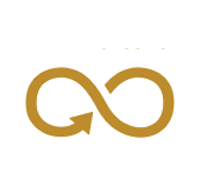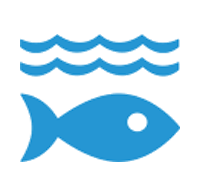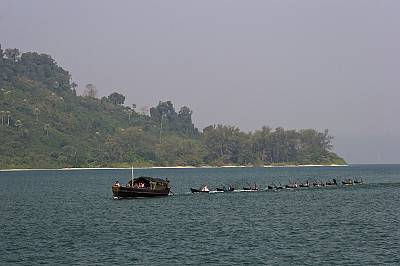- Myanmar, Thailand


Moken Traditional Knowledge in the Mergui Archipelago

© “Moken (Sea Gypsies) Boat called “Kabang” pulling canoes” by ICIMOD Kathmandu is licensed under CC BY-NC 2.0
1. ICH domains
Oral traditions and expressions, social practices, knowledge and practices concerning nature and the universe
2. Short description
The Moken are an Austronesian people numbering between 2,000-3,000, who live on the Mergui Archipelago in the Andaman Sea, off the coasts of southern Thailand and Myanmar. A sea-based, semi-nomadic people, the Moken have traditionally lived on wooden boats called kabang and relied on sustainable fishing practices for their subsistence. From May to October, during the monsoons, they settle in temporary stilt houses on the eastern coasts of the islands.
The Moken became better known to the wider world after the tsunami in December 2004, which killed hundreds of thousands and devastated the coastal areas of 14 countries. Drawing on their indigenous knowledge of the ocean habitat and oral narratives about past tsunamis, most of the Moken were able to anticipate the coming tsunami in time to escape to higher land.
Further information:
Link to UNESCO article about the Moken and their indigenous knowledge:
http://www.unesco.org/new/en/natural-sciences/priority-areas/links/biodiversity/publications/articles/the-knowledge-that-saved-the-sea-gypsies/
Website established by the Moken Tourism team, and provides news, projects, research on the Moken people:
https://www.mokenislands.com/moken-sea-gypsies-3/
The following links give more information and photos on the Moken way of life:
http://projectmoken.com
https://www.survivalinternational.org/galleries/moken-sea-gypsies
3. Link with sustainable development
The Moken have lived sustainably on the ocean for thousands of years, developing unique skills and knowledge. They are, for instance, able to freedive without oxygen tanks to depths of more than 20 meters, lure fish by blowing bubbles and hunt with handmade spears. Traditionally, the Moken only took what they needed to survive from the ocean and land, and lived nomadically, with few possessions. This way of life reflects SDG 12, which aims to ensure sustainable consumption and production patterns and SDG 14 on the sustainable use of oceans and marine resources.
4. Questions for reflection
The Moken’s distinct way of life is increasingly threatened by various factors including: uncertain legal status, maritime conservation and development programs, offshore drilling, tourism, property development and industrial fishing. Both the Thai and Burmese governments have tried to settle the Moken permanently in national parks. However, the Moken have struggled to adjust to a settled life in often crowded conditions. The loss of their nomadic way of life could also lead to the loss of their indigenous knowledge about the sea. (https://www.theguardian.com/global-development/2014/dec/10/indian-ocean-tsunami-moken-sea-nomads-thailand)
How might their way of life and indigenous knowledge and practices be safeguarded (through policy, or awareness raising, etc)?
What can policies and programmes do to support their current way of life, and by who?
What are the Moken suggestions to continue transmitting their knowledge and ways of living?
Do you know of any such examples of indigenous ways of life and traditional knowledge which have been protected?